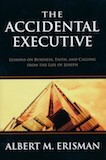Wanted: A Classroom with a View
Blog / Produced by The High Calling
Pam was not called to be a teacher. In fact, she hated her student teaching requirement in college.
“I discovered I loved teaching rather by accident,” she notes, simply by doing what God had put on her path. Working part-time with some ESL students eventually compelled her to pursue her PhD. She taught for 15 years at the university level and another 13 years with middle and high school students at an international institution in the Middle East. Through her experience, she found her work as a teacher encompassed a sacred purpose. Working in environments where she was the only Christian in the school or department and in several different cultures, her scope as a teacher extended far beyond her subject matter.
“You quickly realize that you have a reason for being there,” she says, “being salt and light by living out one’s faith day-to-day.”
Teachers may be content in their work, or they may be in a time of confusion and restlessness, wondering if they are in the right place or if they made a huge mistake. How would you view your work differently if you knew you were strategically appointed by God for a reason?
“Don’t over-spiritualize,” notes Kevin DeYoung in Just Do Something: A Liberating Approach to Finding God’s Will. “You can serve the Lord in a thousand different jobs…. Sometimes you feel a sense of calling to your job and, sometimes you don’t.” The most important calling you have is to be like Christ. Your own personal transformation and your work become the strategic vehicle God has provided you to share Him with the world – no matter what you do.
In conversations with people from all walks of life, Tom Nelson, pastor of Christ Community Church in metro-Kansas City, was continually confronted by a desperate plea, “Please, Tom, tell me that what I do every day has purpose.” That cry of the human heart launched Dr. Nelson into a deep study of Scripture on the theology of vocation and how it is translated into every profession and work environment. In his book, Work Matters: Connecting Sunday Worship and Monday Work (Crossway Books, 2011), Nelson points out how a person’s “faithful presence” in the workplace – no matter where, no matter what – is designed to bring glory to God and to work spiritual transformation in the life of every believer. In God’s economy, no work is viewed as secular, superior, or more spiritual, but rather all work is God-ordained. And through it, God transforms lives in every sphere of influence.
Day after day, in your sphere of influence, everyone around you sees your worldview being lived out before them. People are watching your every move to know if God is real. Students, in particular, have the innate ability to spot a phony a mile away. The core of your life is evident not just in everything you do but in who you are, constantly changing as you grow in Christ. But it doesn’t just happen. “There is no other path to Christian spiritual transformation than through meaningful interaction with the Word of God,” says author Bill Hull. As you spend time in His Word, God uses Scripture to transform you throughout your day. “One of God’s primary places where He desires your mind to be renewed is your workplace – for your thoughts, word, and behavior to be changed while you work,” writes Tom Nelson. “Your workplace is a place of spiritual formation.”
God changes you through personal time in His Word, and as a result, He changes how you see your work, how you see your students, even how you teach your subject, because you see it differently as well. We don’t fragment our lives into pieces where “this is Christian” and “this is not,” but we see the world comprehensively through God’s eyes.
“A teacher’s Christian worldview, expressed both by personal example and verbalization, brings coherence, authenticity and depth to the learning environment,” Dr. Nelson said in a recent email conversation we had. “The transmission of tacit knowledge requires an ongoing presence that makes possible a transformational interaction between teacher and student,” he says. Nelson went on to explain that all human vocations flow out of God’s job description in Genesis 2.15 – to cultivate and to keep. Teachers, he emphasizes, not only contribute to God’s good world through nurturing young minds and protecting the integrity of the classroom, “but also by being faithfully present in a particular place and time.”
“As God’s redeemed people,” Nelson points out, “we are called to live ordinary lives in ordinary places as bold and credible witnesses of the transforming power of the Gospel.” That is your job description: do all things with excellence, exhibit a faithful presence, and manifest His transforming work in you and through you.
Image by Jonathan. Used with permission. Sourced via Flickr. Post by Karen Wells.





